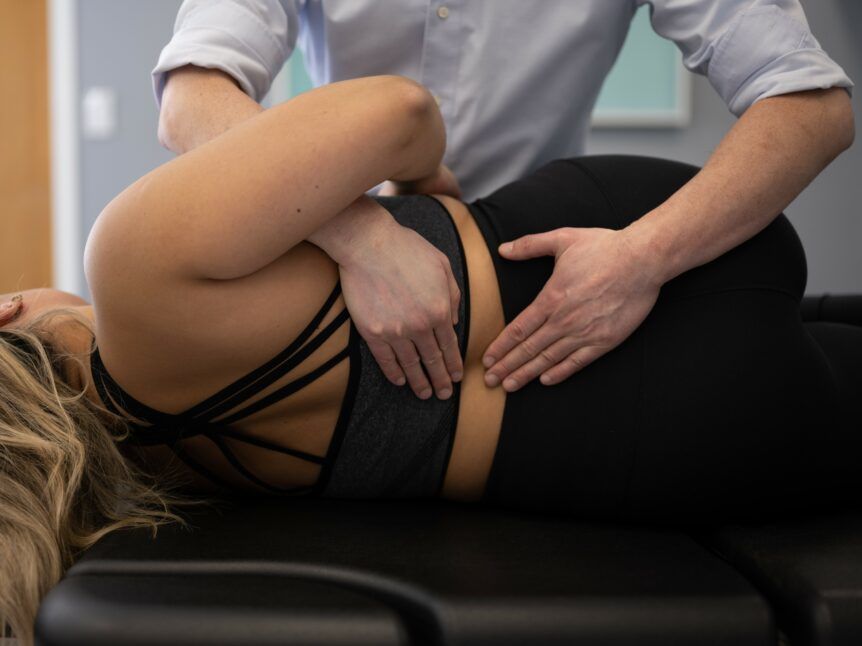The Most Common Injuries Physiotherapists Treat and How They Aid Recovery

Key Takeaways
- Physiotherapists treat a variety of injuries, including sprains, strains, fractures, and post-surgical recovery.
- Physiotherapy plays a crucial role in reducing pain, restoring mobility, and preventing future injuries.
- Customized treatments are necessary for different injuries, emphasizing the importance of professional care rather than DIY solutions.
- Seeking professional help from trained physiotherapists ensures optimal recovery and minimizes the risk of recurring injuries.
Sprains and Strains: A Common Complaint
How Physiotherapists Aid Recovery: Physiotherapists employ a combination of manual therapy and exercises to strengthen the injured area. A typical treatment plan involves:
- Restoring Mobility: Gentle stretching exercises are introduced to regain flexibility and range of motion.
- Strengthening Exercises: Once the injury has healed sufficiently, targeted exercises help rebuild muscle strength around the affected area to prevent future injury.
- Manual Therapy: This may include massage or joint mobilizations to improve tissue flexibility and reduce pain.
Back and Neck Pain: The Modern Epidemic
Physiotherapy focuses on both relieving pain and addressing the underlying causes of the discomfort.
- Posture Correction: Poor posture can lead to chronic pain. Physiotherapists help patients adopt healthier posture habits, whether sitting at a desk or carrying objects.
- Spinal Manipulation: Manual adjustments help realign the spine, alleviating pressure on nerves and muscles.
- Strength and Flexibility Exercises: Strengthening core muscles provides better support for the spine, while stretching relieves muscle tension.
Sports Injuries: ACL Tears, Tendonitis, and Beyond
- Rehabilitation Programs: Athletes benefit from specialized rehabilitation programs tailored to their specific sport and injury.
- Exercise Therapy: Targeted exercises help regain strength and stability, focusing on the injured area while ensuring the athlete is fit for a return to activity.
- Injury Prevention Education: Physiotherapists teach athletes how to avoid re-injury by focusing on proper technique, posture, and muscle conditioning.
Joint Injuries: Knees, Shoulders, and Hips
- Joint Mobilization: Physiotherapists use specific manual techniques to improve joint movement and reduce stiffness.
- Strengthening the Supporting Muscles: By strengthening the muscles around the joint, physiotherapy helps alleviate pressure on the injured joint, promoting healing and restoring function.
- Functional Training: Exercises that mimic daily activities or sport-specific movements help patients regain confidence in their joint’s ability to perform.
Fractures: Recovering Mobility After a Break
How Physiotherapists Aid Recovery:
- Progressive Strengthening: Physiotherapists start with gentle exercises to regain movement and gradually introduce weight-bearing activities to build strength.
- Scar Tissue Management: Manual techniques are used to prevent or break down scar tissue that may limit movement.
- Functional Movement Training: Rehabilitation focuses on returning the patient to their pre-injury activities, whether it’s walking, lifting, or more intensive sports.
Post-Surgical Recovery: A Crucial Part of Healing
How Physiotherapists Aid Recovery:
- Range of Motion Exercises: Early-stage therapy focuses on gentle exercises to maintain flexibility.
- Gradual Strengthening: Over time, physiotherapists introduce more intense strengthening exercises to help rebuild muscles around the surgical site.
- Functional Training: The final stage of recovery focuses on reintroducing the patient to their normal activities, ensuring they are confident and strong enough to resume their daily routine.
Visit us at 7154 120 Street, Surrey, BC V3W 3M8, Canada, where our skilled team will guide you through every step of the healing process. Don’t let pain or mobility challenges keep you from living fully—call us today at 604-307-8988 to schedule a consultation and discover how our personalized services can transform your recovery journey.
FAQs
Q: What type of injuries do physiotherapists treat?
Q: Can physiotherapy help with chronic pain?
Q: How long does it take to recover with physiotherapy?
Q: Should I see a physiotherapist immediately after an injury?

